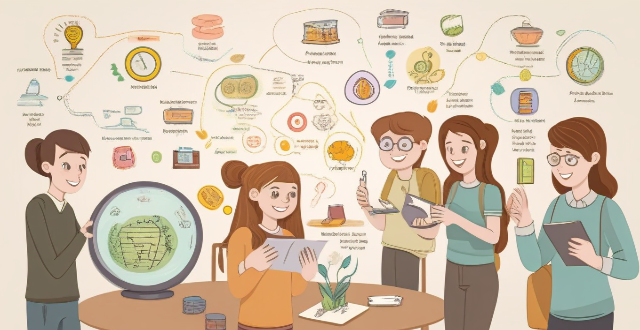The article discusses how educational psychology can contribute to effective teaching strategies. It emphasizes the importance of understanding student diversity, promoting active learning, building positive relationships, and assessing and addressing learning difficulties. By applying these principles, teachers can create a supportive and engaging learning environment that fosters student growth and success.

How Can Educational Psychology Contribute to Effective Teaching Strategies?
Educational psychology is a branch of psychology that focuses on the mental processes involved in learning and teaching. It provides valuable insights into how students learn, think, and behave in educational settings. By applying principles from educational psychology, teachers can develop effective teaching strategies that enhance student engagement, motivation, and achievement. In this article, we will explore some ways educational psychology can contribute to effective teaching strategies.
Understanding Student Diversity
One of the key contributions of educational psychology is the recognition of student diversity. Students come from different backgrounds, cultures, and experiences, which can affect their learning styles, preferences, and needs. Teachers who understand these differences can tailor their instruction to meet the diverse needs of their students. For example, they can use multiple teaching methods, such as visual aids, hands-on activities, and group discussions, to accommodate different learning styles. They can also provide culturally relevant materials and examples that resonate with their students' backgrounds and experiences.
Promoting Active Learning
Another important principle of educational psychology is promoting active learning. Active learning involves engaging students in meaningful activities that require them to think critically, solve problems, and apply what they have learned. This approach encourages students to take ownership of their learning and fosters deeper understanding and retention of knowledge. Teachers can promote active learning by using strategies such as:
- Collaborative Learning: Encouraging students to work together in groups or pairs to complete tasks or projects. This helps them develop teamwork skills, communication skills, and problem-solving skills.
- Inquiry-Based Learning: Providing opportunities for students to explore topics through research, investigation, and experimentation. This helps them develop critical thinking skills and independence in their learning.
- Project-Based Learning: Assigning real-world projects that require students to apply their knowledge and skills to solve complex problems or create innovative solutions. This helps them develop creativity, innovation, and practical skills.
Building Positive Relationships
Educational psychology emphasizes the importance of building positive relationships between teachers and students. When students feel respected, valued, and supported by their teachers, they are more likely to be motivated, engaged, and successful in their learning. Teachers can build positive relationships by:
- Showing Care and Concern: Demonstrating genuine interest in students' lives, interests, and well-being. This helps create a trusting and supportive environment where students feel comfortable expressing themselves and seeking help when needed.
- Providing Constructive Feedback: Giving specific, timely, and positive feedback on students' work and progress. This helps them understand their strengths and areas for improvement and motivates them to continue striving for excellence.
- Encouraging Self-Regulation: Teaching students self-regulation strategies, such as goal setting, time management, and self-reflection. This helps them develop autonomy and responsibility in their learning and prepares them for lifelong learning beyond the classroom.
Assessing and Addressing Learning Difficulties
Educational psychology also plays a crucial role in assessing and addressing learning difficulties. When students struggle with certain subjects or skills, it is essential to identify the underlying causes and provide appropriate support and interventions. Teachers can use various assessment tools and techniques, such as:
- Formative Assessment: Regularly monitoring students' progress through quizzes, assignments, and observations. This helps teachers detect early signs of difficulty and adjust their instruction accordingly.
- Diagnostic Assessment: Evaluating students' cognitive abilities, knowledge levels, and learning styles through standardized tests or individual assessments. This helps teachers identify specific areas of weakness and design targeted interventions.
- Intervention Strategies: Providing additional support and resources for students who need extra help, such as tutoring, accommodations, or specialized instruction. This helps ensure that all students have equal opportunities to succeed in their learning.
In conclusion, educational psychology offers valuable insights and strategies for effective teaching. By understanding student diversity, promoting active learning, building positive relationships, and assessing and addressing learning difficulties, teachers can create a supportive and engaging learning environment that fosters student growth and success.